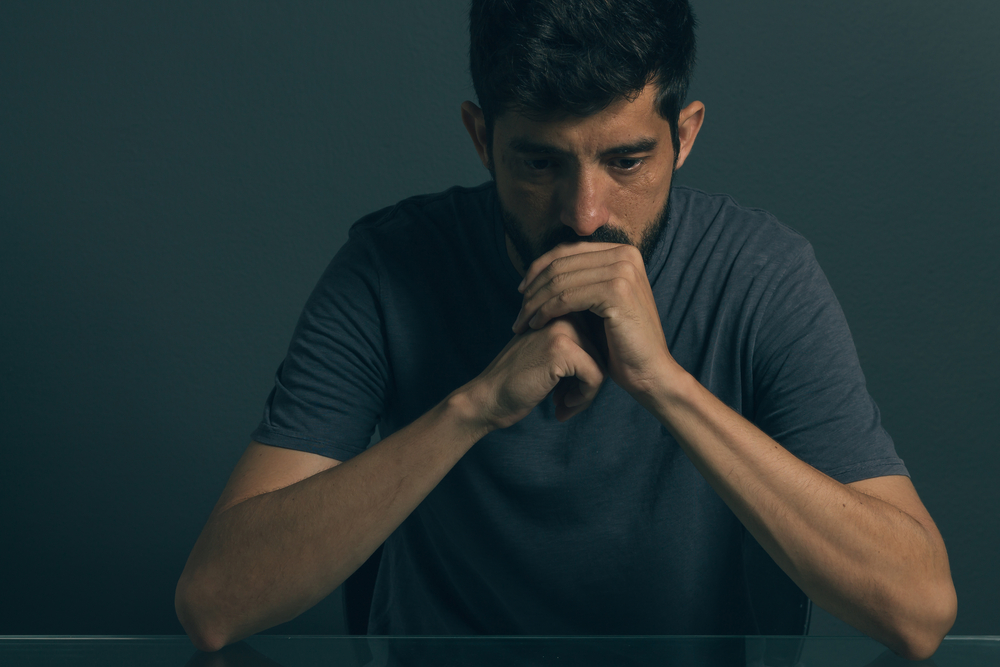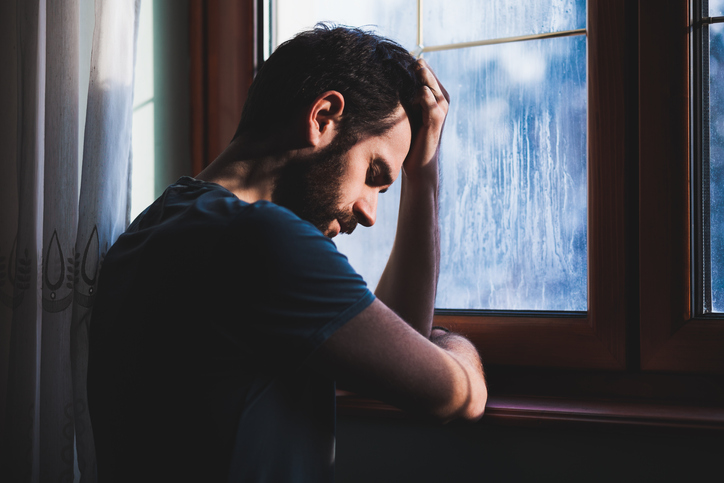Loneliness can be a sneaky beast. It can creep up on you, whisper doubts in your ear, and make you believe that being alone is the safest option. Sometimes, without even realizing it, we fall into patterns that actually deepen our isolation. Here are some of the behaviors that can make people feel so much worse.
1. They decline invitations, even for things they’d enjoy.

That concert your friend invited you to? The casual coffee catch-up? They all sound lovely, but saying “no” feels easier. Maybe you’re worried about feeling awkward or out of place. Or maybe the comfort of your own couch is just too tempting. But every time you say no, you miss out on a chance to connect and have fun. It’s a cycle that feeds into itself, making it even harder to say “yes” next time.
2. They focus on the negative aspects of social interactions.

Remember that one time you stumbled over your words at a party? Or that awkward silence during a conversation? Lonely people tend to replay these moments over and over, magnifying their significance. They start to believe that they’re always the awkward one, the one who doesn’t fit in. But everyone has awkward moments. By focusing on the negative, they miss out on the positive connections they could be making.
3. They compare themselves to influenceres or even friends on social media.

Scrolling through Instagram can feel like a never-ending parade of happy couples, exciting adventures, and picture-perfect lives. It’s easy to feel like you’re the only one who’s not living the dream. But as BetterHelp points out, social media is just a highlight reel. People rarely post about their struggles or insecurities. Comparing yourself to people you follow on social media is a recipe for feeling inadequate and disconnected.
4. They convince themselves they are better off alone.

It’s a defense mechanism, a way to protect themselves from potential hurt. But by convincing themselves that they’re better off alone, they close themselves off to the possibility of meaningful connections. They start to believe that they don’t need anyone, that they’re self-sufficient. But deep down, everyone craves connection and belonging. It’s a fundamental human need.
5. They isolate themselves physically.

They might work from home, order groceries online, and avoid going out unless absolutely necessary. While it’s important to have alone time, too much isolation can be harmful. It can lead to feelings of depression, anxiety, and even physical health problems. By isolating themselves physically, they make it harder to connect with people and build meaningful relationships.
6. They ruminate on past rejections.

Rejection hurts. It’s natural to feel down or disappointed when someone doesn’t reciprocate your feelings or doesn’t want to be your friend. But ruminating on past rejections can be toxic. It can lead to feelings of worthlessness and make it difficult to put yourself out there again. By focusing on the past, they miss out on the potential for new connections in the present.
7. They create a negative self-fulfilling prophecy.

If you believe that you’re unlovable or that no one wants to be your friend, you’re more likely to act in ways that confirm that belief. You might become withdrawn, avoid social situations, and push people away. This creates a negative self-fulfilling prophecy, where your actions actually make it harder to connect with people.
8. They avoid eye contact and engaging in conversations.

Making eye contact and engaging in conversations can be intimidating, especially for people who are feeling lonely. But avoiding these interactions only reinforces feelings of isolation. It can make you seem unapproachable and disinterested, even if that’s not how you truly feel. By making an effort to connect with people, even in small ways, you can start to break down the barriers that are keeping you isolated.
9. They don’t make an effort to stay in touch with friends and family.

Life gets busy, and it’s easy to let relationships slide. But if you’re feeling lonely, it’s important to make an effort to stay in touch with the people who care about you. Reach out to friends and family, even if it’s just for a quick chat or a text message. Let them know how you’re doing and ask about their lives. Staying connected with loved ones can help you feel less alone and more supported.
10. They don’t join clubs or groups.

Joining a club or group is a great way to meet people who share your interests. It can be anything from a book club to a sports team to a volunteer organization. Getting involved in activities you enjoy is a great way to make new friends and feel more connected to your community.
11. They don’t take care of their physical health.

When you’re feeling lonely, it’s easy to neglect your physical health, Healthline acknowledges. But taking care of yourself is important, both physically and mentally. Eat healthy foods, get regular exercise, and get enough sleep. When you feel good physically, you’re more likely to feel good mentally and more likely to want to connect with people.
12. They don’t take care of their mental health.

Loneliness can take a toll on your mental health. If you’re feeling down or anxious, it’s important to seek help. Talk to a therapist or counselor, or join a support group. There are many resources available to help you cope with loneliness and improve your mental well-being.
13. They don’t challenge themselves outside their comfort zone.

It’s easy to get stuck in a rut, especially when you’re feeling lonely. But it’s important to challenge yourself and try new things. Take a class, learn a new skill, or travel to a new place. Stepping outside your comfort zone can help you meet new people and expand your horizons.
14. They don’t forgive themselves for past mistakes.

Everyone makes mistakes. But if you’re feeling lonely, you might be holding onto past mistakes and regrets. Forgive yourself and move on. Focus on the present and the future. You can’t change the past, but you can create a better future for yourself.
15. They don’t believe that they deserve to be happy.

If you don’t believe that you deserve to be happy, you’re not going to find happiness. You deserve to be happy, just like everyone else. Believe in yourself and your worth. You are worthy of love and connection.
16. They don’t take risks.

Taking risks can be scary, but it’s also essential for growth and change. If you’re feeling lonely, you might be afraid to put yourself out there and take risks. But if you don’t take risks, you’ll never know what you’re capable of. Step outside your comfort zone and take a chance on love and happiness.
17. They don’t give back.

Helping people is a great way to feel connected to your community and make a difference in the world. Volunteering your time or donating to a worthy cause can help you feel good about yourself and make a positive impact on other people’s lives. When you give back, you receive.
18. They don’t believe in themselves.

If you don’t believe in yourself, it’s going to be hard to find happiness and connection. Believe in your potential and your ability to overcome challenges. You are strong, capable, and worthy of love.



